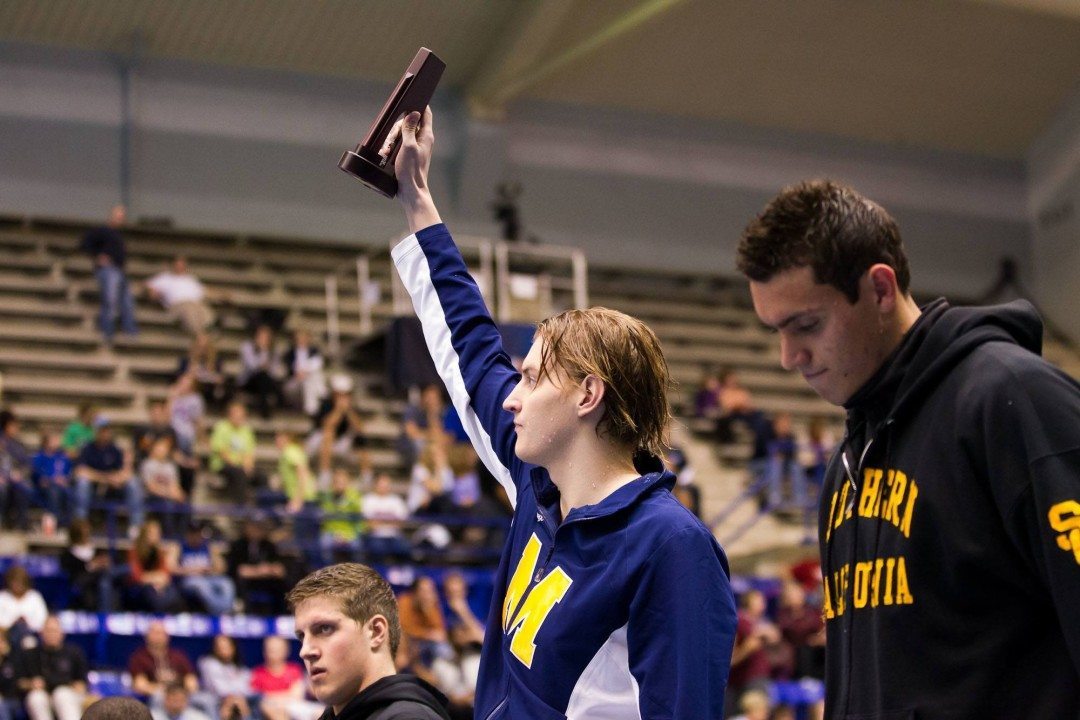With the expansion of the NCAA Swimming and Diving Championship schedule from three days to four days, teams will now have a second opportunity to challenge the American and US Open Records at the NCAA Championships.
In the last two seasons, a US Open or American record has been broken in the 800 freestyle relay at least once each year, but only at conference championship level rather than at the national championships. In 2014, Michigan’s men’s team broke the US Open record in the 800 freestyle relay at the Big Ten Championships with a 6:09.85 and then this year the California women broke the American record at the 2015 Pac 12 Championships with a 6:50.18.
Other coaches have taken advantage of lighter conference schedules as well. Eddie Reese had Jack Conger swim a 200 butterfly time trial at the beginning of the Big 12 championships while he was fresh. He broke the American record in the time trial at the Big 12 Championships but was unable to repeat his performance at the NCAA Championships.
This change by the NCAA will allow teams to go after the NCAA, American, and US Open records at the NCAA Championships more aggressively than we have ever seen before in this event. Not only will everyone be fresh, but the elite 200 freestylers will not have to swim three 200’s in the same day.
Three 200 freestyles is a lot for one day, especially at the NCAA Championships. You have to wonder if Michigan or California could have been faster again at the NCAA Championships or if they were maxed out. Michael Wynalda‘s split on their relay in 2014 was the fastest split in history at 1:30.60. If he could have repeated that performance at the NCAA Championships, the relay and the individual 200 would have been more exciting.
Adding a fourth day to the meet will help spread out the events, but it could make the final day more challenging. For swimmers that compete on night 1 (Wednesday), they will have to maintain their bodies an extra day, which could challenging with such a busy schedule. On the other hand, the number of swims will not change and the athletes will have more time before the final day of the meet to focus on recovery, so it may balance out.
Either way, the 2015-2016 will feature a lot of new changes and should help to make the meet more exciting for the fans and the athletes.
